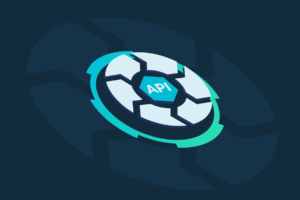API compliance means complying with internal organizational governance as well as industry and regional regulations. It’s a business-critical priority, not just a technical requirement, as non-compliance can mean regulatory fines and data breaches, which can incur regulatory penalties, erode customer trust, and have a significant financial impact.
API compliance is defined as how an organization ensures that their APIs support the security and governance protocols defined by industry-specific requirements or regulations including PCI DSS, PSD2, GDPR, and EU AI Act, and others. An integral element in API security initiatives, API compliance helps guide security practitioners and developers to ensure the security of APIs, their applications, and the data transacted through them.
Why are API Compliance Standards Important?
Organizations are deploying APIs across their physical and cloud environments to connect applications and provide access to data. This sprawling API footprint across organizations presents a significant security challenge; there is a very clear and present danger of data exposure through non-compliant APIs. The prevalence of APIs across diverse locations makes it difficult to inventory, manage, and secure them. Every API is a potential attack vector, and API-related security incidents are frequently in the news. The vulnerability of your network, your APIs, and associated endpoints is inextricably linked to the number of APIs spread across your organization. Failure to protect your APIs, securing who can access them and the data used by the APIs can result in non-compliance with industry regulations with financial penalties as well as loss of customer trust and reputation.
What are Some Common Compliance Frameworks?
- PCI DSS – PCI DSS version 4.0 explicitly includes considerations for API security within its standard. Any organization utilizing APIs to receive or transmit cardholder account data is required to be PCI compliant. Version 4.0 also requires the continuous detection and prevention of web-based attacks, which can be accomplished using a solution such as Cequence’s Bot Management offering.
- PSD2 – One of the earliest to call attention to the need for API security, PSD2 requires banks to share customer financial data with authorized third-party providers (TPPs) through secure APIs. Payment service providers must legally comply as of 14 Sep 2019.
- ISO/TS 23029:2020 – This standard, Web-service-based application programming interface (WAPI) in financial services, “defines the framework, function, and protocols for an API ecosystem that enables online synchronized interaction.” It defines a layered approach to developing APIs and outlines identity, security, and registration considerations relevant to APIs.
- DORA – The Digital Operational Resilience Act (DORA) was introduced by the European Union and took effect on 17 Jan 2025. It focuses on digital operational resilience for the financial sector, but it also affects supply chain companies such as those providing technologies to financial entities. Failure to comply with DORA can have severe consequences for financial entities, including substantial fines, enforcement actions, and increased regulatory oversight.
Balancing API Security & Regulatory Compliance
It is essential to understand that while API security and compliance are two different practices, the lines have blurred considerably and are now interconnected. The regulations recognize this interconnectivity, and they have certain specific requirements that put the spotlight on security. For example, one of the critical requirements of PCI-DSS is that software should be developed securely. Focus on software/system security during development minimizes vulnerabilities and reduces exploitation opportunities by criminals. This essentially means APIs must be secured as well.
Therefore, organizations must be aware of API risks that can interfere with their governance and compliance objectives. Some of these are defined by the OWASP API top 10 list including:
- Broken Object Level Authorization
- Broken User Authentication
- Excessive Data Exposure
- Lack of Resources and Rate Limiting
- Broken Function Level Authorization
- Security Misconfiguration
Key Factors to Consider for Developers and Security Practitioners
API compliance is an essential subset of a complete API strategy and requires a collaborative environment between developers and security teams to identify coding errors and potential vulnerabilities early in the development cycles. Even basic coding errors can leak sensitive information or provide unauthorized access to back-end resources that result in sensitive data exposure.
Two keys to ensuring API compliance are API security testing and regular API security posture management. API security testing should be part of the software development lifecycle to “shift left” and address security issues in the earlier stages of development. Then, API security posture management can ensure runtime issues are quickly discovered and addressed.
How Can Organizations Achieve API Compliance?
Achieving API compliance throughout your organization may seem like a daunting task, but it is possible, and tools like Cequence exist to help automate many of the steps.
- Discovery all APIs – internal, external, and third-party
- Generate specifications for APIs that don’t have them
- Monitor API transactions, identifying and addressing vulnerabilities
- Protect APIs from automated attacks with advanced bot management
As APIs proliferate across the enterprise network, organizations can no longer depend on a manual approach to API compliance. Instead, they must utilize a platform that specializes in API security that can automate many of the tasks required for security and compliance. The Cequence Unified API Protection platform can automate many of the tasks required for API compliance with both internal guidelines and external regulations. Get started with a free API assessment today.
Sign up for the latest Cequence Security news
By clicking Subscribe, I agree to the use of my personal data in accordance with Cequence Security Privacy Policy. Cequence Security will not sell, trade, lease, or rent your personal data to third parties.





